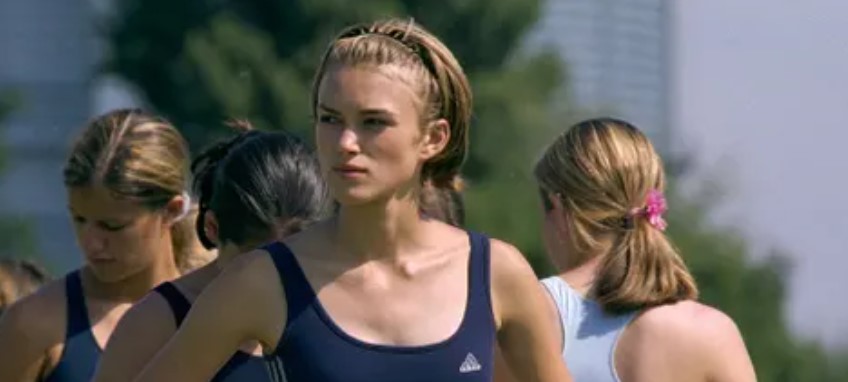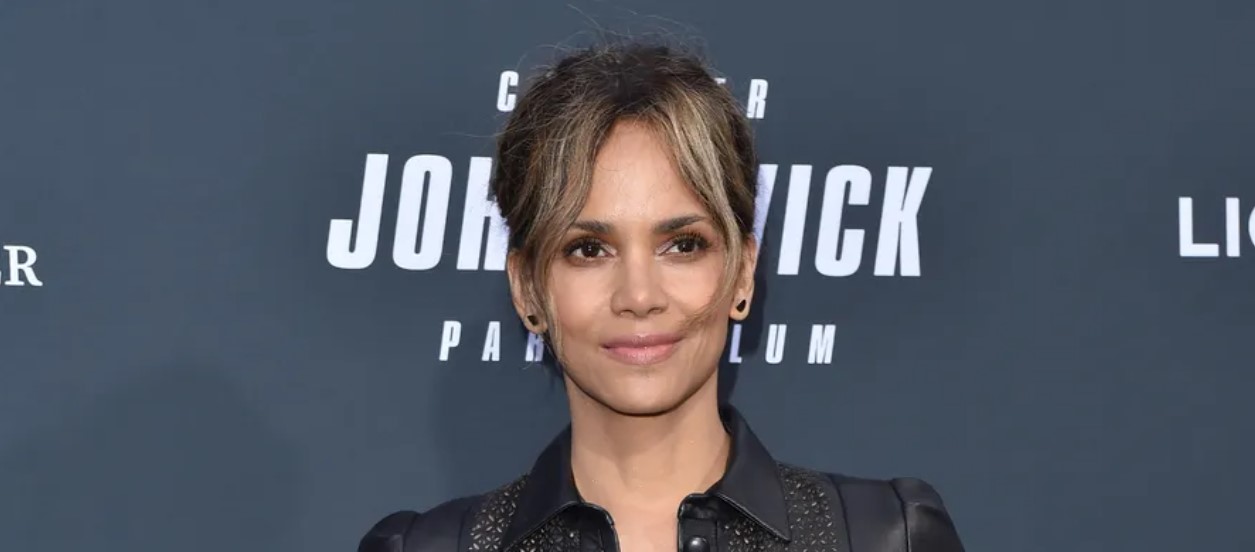
Sylvester Stallone Early Years
Sylvester Stallone Sylvester Stallone: 7 Day Workout Routine – Sly was born on July 6, 1946, in New York City. He emerged from a challenging upbringing to become one of Hollywood’s most iconic actors, screenwriters, and directors. Raised in the Hell’s Kitchen neighborhood, Stallone’s early life was marked by adversity and a relentless pursuit of his dreams. In this article we talk a bit about his life and the offer up a likely scenario for the Sylvester Stallone: 7 day workout routine.
Sylvester’s parents, Frank Stallone Sr. and Jacqueline Stallone, divorced when he was young. His early years were characterized by financial struggles, and a strict disciplinarian father with whom he lived after his parents divorce. His family’s modest circumstances forced them to move frequently. Born with facial nerve damage that partially paralyzed his face, Stallone faced taunts and bullying from his peers, which fueled his determination to prove himself.
Despite the hardships, Stallone discovered his passion for storytelling and acting early on. He attended the American College of Switzerland and later the University of Miami, where he studied drama. Stallone’s decision to pursue acting against societal expectations reflected his tenacity and belief in his own abilities.
In the early 1970s, facing financial difficulties and rejection in the entertainment industry, Stallone turned to writing. In a three-day burst of inspiration, he penned the script for “Rocky” (1976), a film that would not only define his career but also become a cultural phenomenon. Stallone’s insistence on starring in the lead role, despite offers to sell the script, showcased his unwavering commitment to his vision.
“Rocky” went on to win three Academy Awards, including Best Picture, and catapulted Stallone to stardom. The underdog story mirrored his own struggles, resonating with audiences worldwide. Subsequent successes, including the “Rambo” series, cemented Stallone’s status as an action movie icon.
Beyond the glitz of Hollywood, Sylvester Stallone’s life narrative is one of resilience, self-belief, and the triumph of the human spirit. His journey from a challenging upbringing to international fame reflects the indomitable will of a man who refused to be defined by his circumstances, ultimately leaving an enduring legacy in the annals of cinema.
Stallone’s journey in Hollywood began with a series of roles that showcased his versatility and determination.
In the early 1970s, Stallone appeared in films like “The Lords of Flatbush” (1974) and “Capone” (1975), where he demonstrated his acting chops in supporting roles. However, it was his leading role in “The Italian Stallion” (1970), later rebranded as “The Party at Kitty and Stud’s,” that marked his first foray into the spotlight. This film, an adult-themed drama, hinted at the rugged charisma that would become Stallone’s trademark.

The Development of Sylvester Stallone’s Physique
Sylvester Stallone, the legendary actor, writer, and director, is not only known for his iconic roles but also for the remarkable transformation his physique underwent over the course of his career. From the gritty streets of Philadelphia in “Rocky” to the war-torn landscapes of “Rambo,” Stallone’s body became a visual testament to his dedication to his craft and the characters he portrayed.
The Birth of Rocky: A Physical Underdog
In 1976, Stallone introduced the world to “Rocky Balboa,” an underdog boxer with dreams of greatness. What made the character resonate deeply was Stallone’s own physical transformation. Before “Rocky,” Stallone was a struggling actor, and his body reflected the challenges he faced. To bring Rocky to life authentically, Stallone committed to an intense training regimen that included long hours in the gym and a focused diet. The result was a lean, muscular physique that symbolized the heart and determination of the character.



Sylvester Stallone: From Lean to Ripped
As Stallone transitioned from the streets of Philadelphia to the jungles of Vietnam in the “Rambo” and “Rocky” series, his physique underwent another transformation. The character of John Rambo demanded a more rugged and muscular look. Sylvester Stallone embraced a regimen that included intense weight training and functional fitness, sculpting a body that embodied the survivalist spirit of the iconic character. Audiences, workouting out hard in the gyms would flock to his movies, in part to see the transformation his body had undergone.

Aging Gracefully: Balancing Act
As the years passed, Stallone faced the challenge of aging gracefully while maintaining the physicality demanded by his roles. In films like “Rocky Balboa” (2006) and “Creed” (2015), Stallone showcased a more mature but still formidable physique. He adapted his training to focus on functional strength, agility, and maintaining overall health, proving that age is no barrier to staying fit.

The Audience’s Perspective: Witnessing the Evolution
Stallone’s body transformation wasn’t just a personal journey; it was a visual narrative that unfolded on the big screen. Audiences watched as the actor molded his physique to fit the evolving roles he undertook. The physicality of his characters mirrored the emotional and narrative arcs of the films, creating a deeper connection between the audience and the stories being told.
Inspiration and Legacy
Stallone’s body transformation journey has inspired countless individuals worldwide. Beyond the gym, his commitment to pushing physical boundaries and embracing challenges speaks to the universal theme of resilience. Stallone’s legacy is not just the characters he brought to life but the indomitable spirit he embodied, reminding us all that transformation is not only physical but also a testament to the strength of character.
In the end, Sylvester Stallone’s body transformation is a testament to the symbiotic relationship between an actor and their craft. The audience didn’t just watch Stallone transform; they witnessed the evolution of characters, each marked by the physical and emotional commitment of a Hollywood legend.
Generalizing Stallone’s Workouts
Sylvester Stallone has been known for maintaining a rigorous fitness routine throughout his career. However, specific details about his routine may have changed since then. As of the last available information, here are some aspects of Sylvester Stallone’s fitness routine:
- Strength Training:
- Stallone is known for incorporating intense strength training into his fitness routine. This includes weightlifting to build and maintain muscle mass.
- Boxing and Martial Arts:
- Given his roles in the “Rocky” and “Rambo” film franchises, Stallone has been involved in boxing and martial arts training. This includes various forms of combat training to stay agile and maintain endurance.
- Cardiovascular Exercise:
- Cardio is an essential part of Stallone’s routine to enhance overall cardiovascular health and endurance. This could include activities such as running, cycling, or other aerobic exercises.
- Diet and Nutrition:
- Stallone pays close attention to his diet to support his fitness goals. This typically involves a high-protein diet to aid in muscle maintenance and recovery.
- Functional Training:
- Stallone may incorporate functional training exercises to improve flexibility, balance, and coordination. This can be crucial for performing stunts and action sequences in movies.
- Consistency:
- One key aspect of Stallone’s fitness success is consistency. He has maintained a commitment to regular workouts and staying active throughout his career.
It’s important to note that fitness routines can evolve, and celebrities may adjust their training based on specific roles, health considerations, or personal preferences. For the most up-to-date information on Sylvester Stallone’s fitness routine, it would be best to refer to recent interviews, articles, or official statements from Stallone or his trainers. Always consult with a fitness professional or healthcare provider before starting a new fitness routine, especially if you have any health concerns.


Based on training philosophy, physique and commentary made through the years, we estimate a likely Sylvester Stallone: 7 Day workout routine.
Sylvester Stallone: 7 Day Workout Routine
Day 1: Strength Training
- Bench Press: 4 sets x 8-12 reps
- Squats: 4 sets x 10-15 reps
- Deadlifts: 3 sets x 8-12 reps
- Overhead Press: 3 sets x 10-12 reps
- Pull-Ups: 3 sets to failure
Day 2: Cardio and Boxing/Martial Arts
- Running or Cycling: 30-45 minutes
- Boxing/Martial Arts Training: 1 hour
- Jump Rope: 15 minutes
Day 3: Functional Training
- Medicine Ball Slams: 3 sets x 15 reps
- Kettlebell Swings: 3 sets x 20 reps
- Bosu Ball Squats: 3 sets x 12 reps
- TRX Rows: 3 sets x 12 reps
Day 4: Cardio and Core Workout
- High-Intensity Interval Training (HIIT): 30 minutes
- Planks: 4 sets x 1 minute each
- Russian Twists: 3 sets x 20 reps
- Hanging Leg Raises: 3 sets x 15 reps
Day 5: Active Recovery
- Light Jog or Walk: 30 minutes
- Yoga or Stretching: 30 minutes
Day 6: Full Body Workout
- Dumbbell Lunges: 3 sets x 15 reps
- Dumbbell Rows: 3 sets x 12 reps
- Push-Ups: 3 sets to failure
- Box Jumps: 3 sets x 10 reps
Day 7: Rest or Light Activity


Keep in mind that this is a generalized routine and may not accurately reflect Stallone’s current workout plan. Individual fitness needs and goals vary, and it’s essential to customize a routine based on personal preferences, fitness level, and any specific health considerations. Additionally, Stallone’s routine may be adjusted for specific roles or film projects. Always consult with a fitness professional or healthcare provider before starting a new fitness program and consider using nutritional supplements to maximise performance and gains.

Preparing for Rambo

Sylvester Stallone’s training for roles like Rambo involved a combination of strength training, cardiovascular conditioning, combat skills, and functional exercises. Keep in mind that the specific details of his workouts may not be publicly disclosed, but based on the principles he has shared, here’s a sample workout inspired by what Stallone might have used for preparing as Rambo:
Day 1: Strength and Functional Training
Warm-up:
- Jump rope: 5 minutes
- Dynamic stretching
Strength Training:
- Squats:
- 4 sets x 8-10 reps
- Deadlifts:
- 4 sets x 8-10 reps
- Bench Press:
- 4 sets x 8-10 reps
- Pull-Ups:
- 3 sets x max reps
Functional Exercises:
- Tire Flips:
- 5 sets x 10 flips
- Battle Rope Exercises:
- Alternating waves, slams, and circles: 3 sets x 1 minute each
Day 2: Cardiovascular Conditioning and Combat Skills
Cardiovascular Training:
- Interval Sprints:
- 10 rounds x 30 seconds sprint, 30 seconds rest
- Hill Sprints:
- 5 sets x 50-meter sprints uphill
Combat Skills:
- Martial Arts Drills:
- 20 minutes of shadowboxing incorporating kicks, punches, and defensive moves.
- Weapon Training:
- Practice with training knives and firearms (under professional supervision).
Day 3: Active Recovery and Mobility
Active Recovery:
- Light jogging or cycling for 30 minutes
Mobility and Flexibility:
- Yoga or Pilates:
- 30 minutes focusing on flexibility and core strength
- Foam Rolling:
- 10 minutes targeting major muscle groups
Day 4: High-Intensity Circuit
Circuit Training: Perform each exercise consecutively with minimal rest between exercises. Rest for 1-2 minutes between rounds. Complete 3 rounds.
- Box Jumps:
- 15 reps
- Medicine Ball Slams:
- 20 reps
- Burpees:
- 15 reps
- Kettlebell Swings:
- 20 reps
- Pull-Ups:
- 10 reps
Day 5: Mixed Martial Arts (MMA) and Skill-Specific Drills
MMA Training:
- Sparring:
- 3 rounds x 3 minutes (under professional supervision)
- Ground and Pound Drills:
- 15 minutes
- Grappling Drills:
- 20 minutes
Skill-Specific Drills:
- Rope Climbing:
- 5 sets x 1 minute
- Monkey Bars:
- 3 sets x 10 traverses
Day 6: Endurance and Cardio
Endurance Training:
- Long-Distance Run:
- 5 miles at a moderate pace
- Cycling:
- 30 minutes of steady-state cycling
Day 7: Rest and Recovery
Rest Day:
- Complete rest or engage in light recreational activities for active recovery.
Recovery Practices:
- Massage Therapy:
- Schedule a massage session for muscle recovery.
- Sauna or Cold Bath:
- 15-20 minutes to aid in recovery and reduce muscle soreness.
Remember, this workout is a speculative representation and should be adjusted based on individual fitness levels, goals, and preferences. It’s crucial to consult with a fitness professional or healthcare provider before starting a new, intensive workout program.




